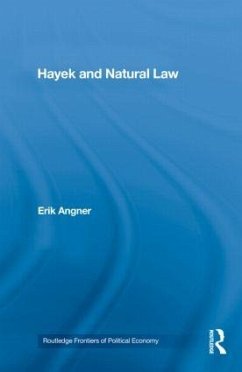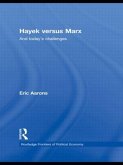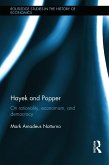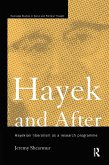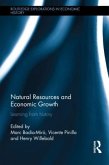Providing a radical new reading of Hayek's life and work, this new book, by an important Hayekian scholar, dispels many of the mysteries surrounding one of the most prominent economists and political philosophers of the twentieth century. Angner argues that Hayek's work should be seen as continuous with the Natural Law tradition, going on to analyze the response to his work and explain why some have found his ideas so attractive and why others have found them so unpersuasive. The book develops novel accounts of his thought on: spontaneous order information and coordination cultural evolution. This fresh and incisive analysis is the perfect introduction to Hayek's thought for academics involved with philosophical economics and the history of economic ideas as well as for scholars of all levels seeking a new interpretation or deeper understanding of the origins of his work.
Hinweis: Dieser Artikel kann nur an eine deutsche Lieferadresse ausgeliefert werden.
Hinweis: Dieser Artikel kann nur an eine deutsche Lieferadresse ausgeliefert werden.

